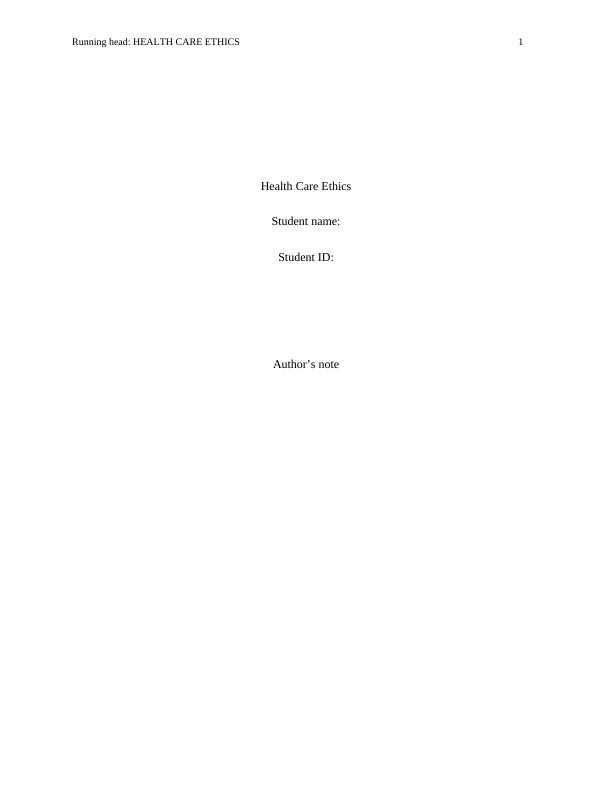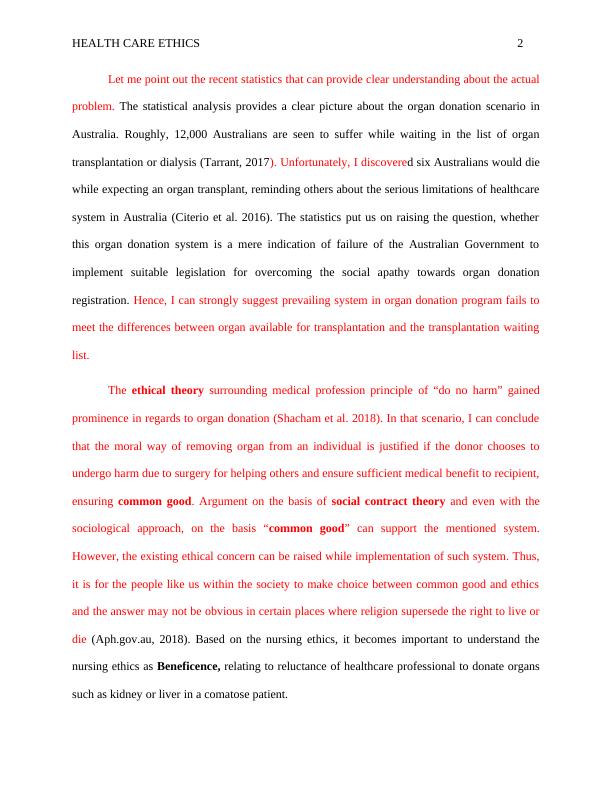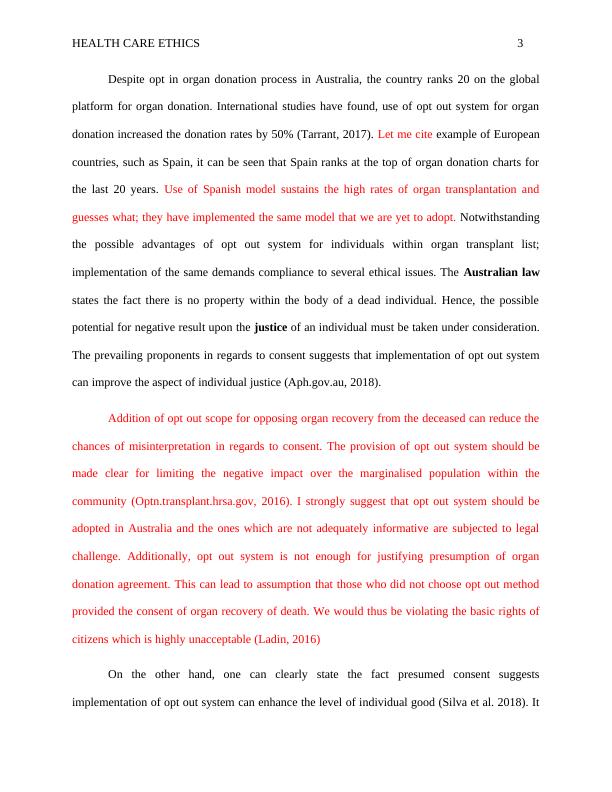Health Care Ethics
Write a debate on the topic 'The opt out system of organ donation should be adopted in Australia' and provide two affirmative points that rebut negative speaker's points on autonomy, freedom of choice, human rights, and dignity. The debate should include examples, references, and engage the audience.
6 Pages1199 Words189 Views
Added on 2022-12-15
About This Document
This article discusses the ethical considerations surrounding health care and organ donation. It explores the current organ donation system in Australia and suggests the adoption of an opt-out system. The article also highlights the importance of individual choice and education in organ donation.
Health Care Ethics
Write a debate on the topic 'The opt out system of organ donation should be adopted in Australia' and provide two affirmative points that rebut negative speaker's points on autonomy, freedom of choice, human rights, and dignity. The debate should include examples, references, and engage the audience.
Added on 2022-12-15
ShareRelated Documents
End of preview
Want to access all the pages? Upload your documents or become a member.
Organ Donor Data in Driving License
|13
|633
|21
Challenges and Solutions in Australia's Health Sector
|4
|760
|121
National Health Reforms
|8
|1397
|76



